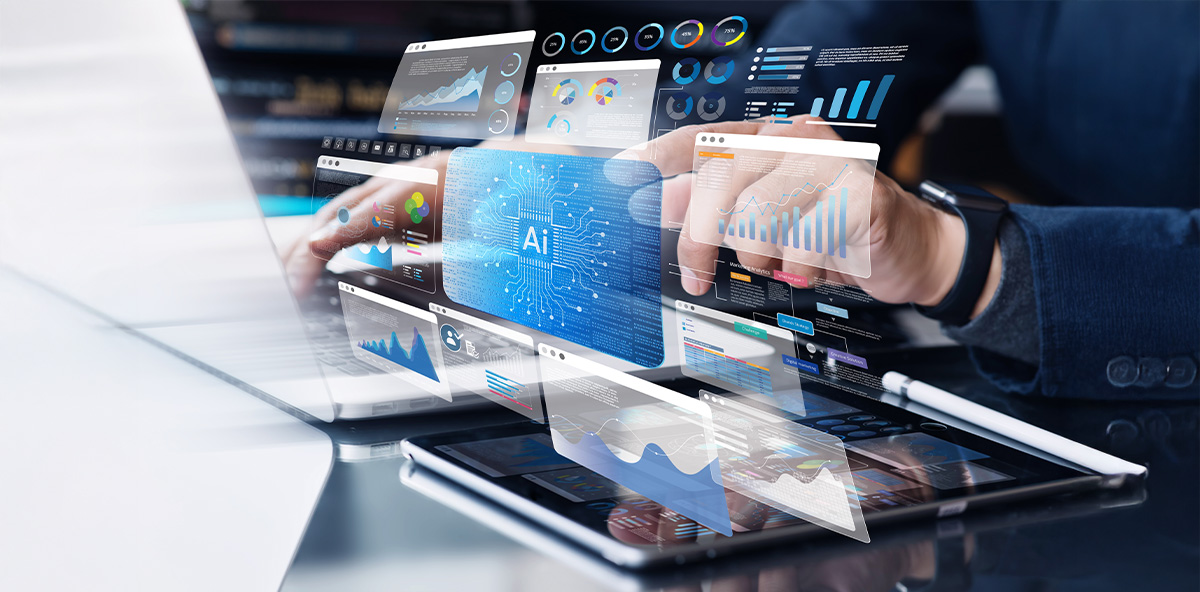Best Practices Articles
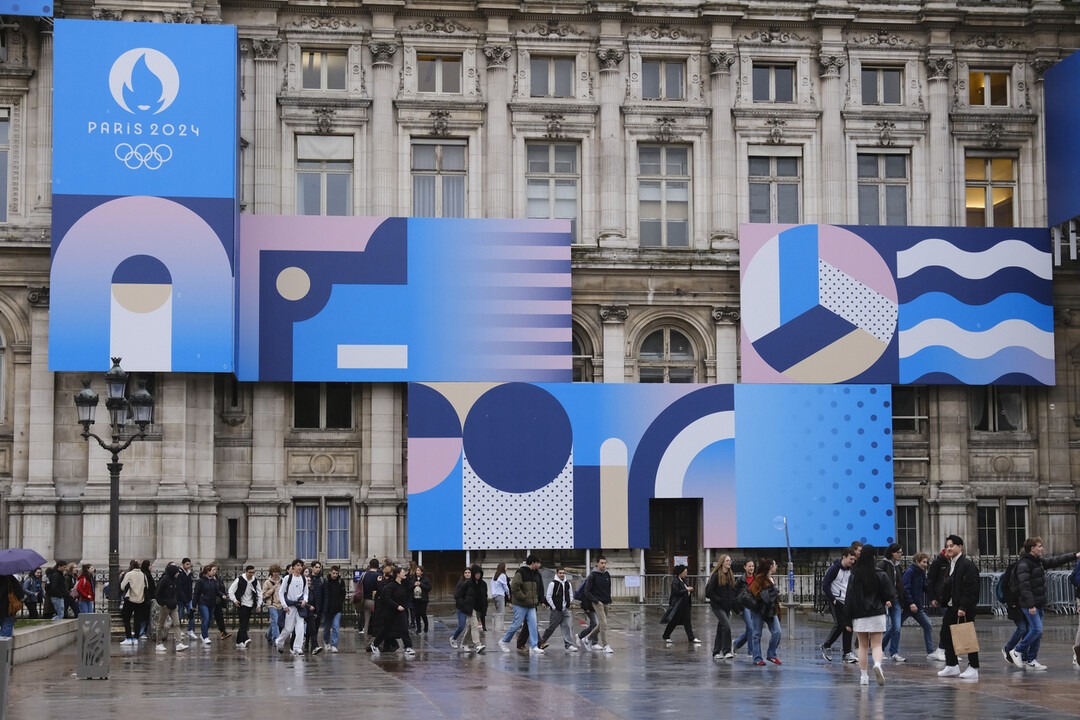
Partner Ecosystem Behind the Olympics
The Olympic Games, held every four years, represent the pinnacle of athletic achievement and international cooperation. The organization and execution of such a colossal event require a meticulously coordinated effort from many global and local partners. This article delves into the multifaceted partnerships that are essential in making the Olympics a reality, focusing on sports associations, the organizing bodies, security and safety partners, airlines, food and healthcare providers, clothing and apparel brands, media and advertising agencies, hotels and tourism, and the fans and spectators who bring the event to life.
Sports Associations and National Committees
Each participating country has national sports associations and Olympic committees integral to the Games. These bodies are responsible for selecting and preparing athletes, coordinating training programs, and ensuring their teams are ready for competition. For instance, the United States Olympic & Paralympic Committee (USOPC) oversees all Olympic-related activities for American athletes. At the same time, the British Olympic Association (BOA) performs a similar role in the United Kingdom. These organizations work closely with their respective governments, sports federations, and sponsors to provide the necessary support and resources.
The role of these associations extends beyond just preparation and selection. They are also responsible for fundraising and securing sponsorship deals to fund their athletes' training and participation. For example, the Australian Olympic Committee (AOC) partners with brands like Optus and Cadbury to support their athletes financially. Similarly, the Japanese Olympic Committee (JOC) collaborates with domestic companies such as Asahi and Mizuno, which provide financial support and contribute to developing sports technology and equipment.
In the 2024 Paris Olympics context, the French National Olympic and Sports Committee (CNOSF) has partnered with French multinational companies like EDF and LVMH. EDF, a major energy company, provides sustainable energy solutions to power the Games, while LVMH, a luxury goods conglomerate, sponsors the French national team and promotes French culture and heritage. These partnerships highlight the diverse ways national committees leverage local brands to support their athletes and enhance the overall Olympic experience.
The CNOSF has also launched several initiatives to promote sports and physical activity across France in the lead-up to the Games. Programs such as "Tous en Forme" (Everyone in Shape) and "Génération 2024" aim to inspire young people to participate in sports, highlighting the Games' legacy of fostering a healthier and more active population. These initiatives are supported by partnerships with educational institutions and local sports clubs, ensuring a broad approach to sports development.
The International Olympic Committee (IOC)
At the heart of the Olympic movement is the International Olympic Committee (IOC), the organization responsible for the overall governance of the Games. The IOC coordinates with host cities, national Olympic committees, and international sports federations to ensure the smooth running of the event. This involves everything from setting the rules and regulations to overseeing infrastructure and facilities development. The IOC also negotiates broadcasting rights and global sponsorship deals, which are critical for funding the Games.
The IOC's global partners, known as The Olympic Partners (TOP), play a significant role in the success of the Games. Companies like Coca-Cola, Visa, and Samsung are part of this exclusive group, providing financial support and contributing to various aspects of the event. Coca-Cola, for example, has been a partner since 1928, offering beverages to athletes and spectators and engaging in extensive marketing campaigns. Visa ensures that the Games are financially accessible by facilitating seamless payment solutions for ticketing, merchandise, and other transactions.
For the 2024 Paris Olympics, new global partners have joined the TOP program, including Airbnb and P&G. Airbnb provides unique accommodation solutions for visitors, promotes sustainable tourism, and facilitates cultural exchanges between guests and hosts. P&G, a long-time partner, continues to support the Games by offering a range of consumer goods and services, from personal care products to cleaning supplies, ensuring that both athletes and spectators have access to high-quality amenities.
The IOC also collaborates with international sports federations, such as the International Association of Athletics Federations (IAAF) and the International Swimming Federation (FINA), to ensure the highest competition standards. These federations are responsible for setting the technical regulations for their respective sports, overseeing the qualification process, and ensuring fair play during the Games. Their expertise and guidance are crucial in maintaining the integrity and prestige of the Olympics.
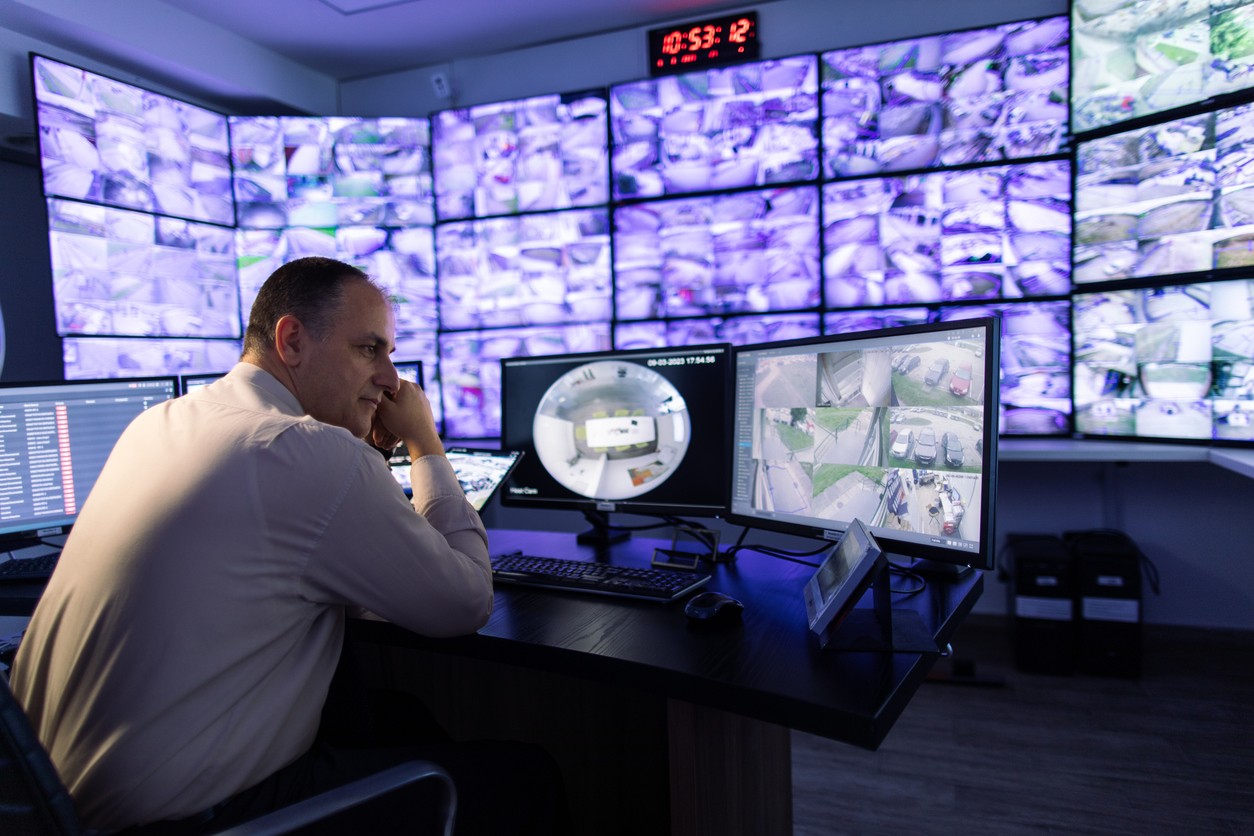
Security and Safety Partner Ecosystem
Ensuring the safety and security of athletes, officials, and spectators is a top priority for any Olympic Games. This task requires close collaboration between international and national security agencies, local law enforcement, and private security firms. Host countries typically establish special security task forces to handle the unique challenges of the Olympics, such as counter-terrorism measures and crowd control. For example, during the 2016 Rio Olympics, Brazil deployed over 85,000 security personnel, including police and military, to safeguard the event.
Private security firms like G4S and Securitas are often contracted to provide additional manpower and expertise. These companies offer services ranging from surveillance and access control to emergency response and VIP protection. Technology firms like Cisco and NEC also contribute by supplying advanced security systems, including surveillance cameras, biometric scanners, and cybersecurity solutions. These partner ecosystems ensure that the Games are secure from physical and digital threats.
For the 2024 Paris Olympics, the French government is collaborating with international security agencies such as Interpol and Europol to enhance security measures. Additionally, private security firms like Securitas France and technology companies like Thales play crucial roles. Thales, for instance, is providing cutting-edge cybersecurity solutions to protect the Games' digital infrastructure, ensuring that sensitive data and communications remain secure. The deployment of drones and AI-powered surveillance systems further enhances the security apparatus, making the 2024 Paris Olympics one of the most secure events in history.
The security strategy for the Paris Olympics also includes a robust emergency response plan developed in collaboration with local health services and the French Red Cross. This plan ensures that medical teams are on standby to respond to any emergencies, from minor injuries to major incidents. The integration of advanced communication systems allows for real-time coordination between security and medical teams, enhancing the overall safety and security of the Games.
Airlines and Transportation
Transportation is another critical aspect of the Olympics, as athletes, officials, and spectators travel from all corners of the globe to attend the Games. Major airlines often become official partners, providing flights and logistical support. For instance, Air Canada was a key partner during the Vancouver 2010 Winter Olympics, facilitating the transport of thousands of participants and fans. Additionally, local transportation networks in the host city are enhanced to handle the increased demand, including upgrades to public transit systems and the provision of shuttle services.
Besides airlines, transportation partner ecosystems extend to ground transportation providers. Companies like Uber and Lyft often collaborate with the organizing committee to offer visitors convenient and reliable transport options. During the Tokyo 2020 Olympics, Toyota, a global partner, played a significant role by providing a fleet of electric and autonomous vehicles to reduce the environmental impact and improve mobility for attendees. Public transportation systems, such as the Tokyo Metro, also enhance their services, extending hours and increasing the frequency of trains to accommodate the influx of passengers.
For the 2024 Paris Olympics, Air France has been designated as the official airline partner, providing special flights and logistical support for athletes and visitors. The French government is also investing heavily in upgrading the public transportation network in Paris, including constructing new metro lines and introducing electric buses. Innovative mobility solutions such as electric scooters and bike-sharing programs are being promoted to reduce traffic congestion and promote sustainable transportation options.
The transportation strategy for the Paris Olympics also includes partner ecosystems with companies like Alstom, which provides high-speed trains to connect Paris with other major cities in France and Europe. These trains offer a sustainable and efficient travel option for spectators, reducing the Games' carbon footprint. Additionally, the introduction of hydrogen-powered buses and the expansion of the Vélib bike-sharing system highlight the commitment to promoting eco-friendly transportation solutions.
Food and Healthcare Providers
Feeding and maintaining the health of athletes and attendees is no small feat. The Olympic Village, where athletes reside during the Games, must offer diverse nutritious meals to cater to various dietary needs and cultural preferences. Renowned food service companies like Aramark and Sodexo often manage these large-scale catering operations. Healthcare services are equally crucial, with medical facilities within the Olympic Village and at all competition venues. Partnerships with leading healthcare providers ensure athletes receive top-notch medical care and support.
Local food suppliers and restaurants also play a vital role in catering to visitors' diverse culinary preferences. For example, during the Beijing 2008 Olympics, local eateries and international chains collaborated to offer various dining options, from traditional Chinese cuisine to global fast-food brands. On the healthcare front, partnerships with hospitals and medical institutions, such as the Cleveland Clinic during the Los Angeles 2028 Olympics, ensure that comprehensive medical services are available. These services include emergency care, routine check-ups, and specialized treatments for injuries.
For the 2024 Paris Olympics, renowned French chefs and food brands are collaborating to offer a unique culinary experience. Companies like Danone and Carrefour provide fresh, locally sourced ingredients for the Olympic Village, ensuring athletes access nutritious and delicious meals. Healthcare providers such as Groupe Vivalto Santé and Assistance Publique-Hôpitaux de Paris (AP-HP) are partnering to deliver comprehensive medical services, from primary care to advanced treatments, ensuring all participants receive the best possible care.
The focus on sustainability extends to the food services as well. Partnerships with local farmers and food producers ensure that a significant portion of the food served is organic and sustainably sourced. Initiatives to minimize food waste, such as composting and donating surplus food to local charities, are also being implemented. These efforts highlight the commitment to making the 2024 Paris Olympics a celebration of sports and a model of sustainable practices.
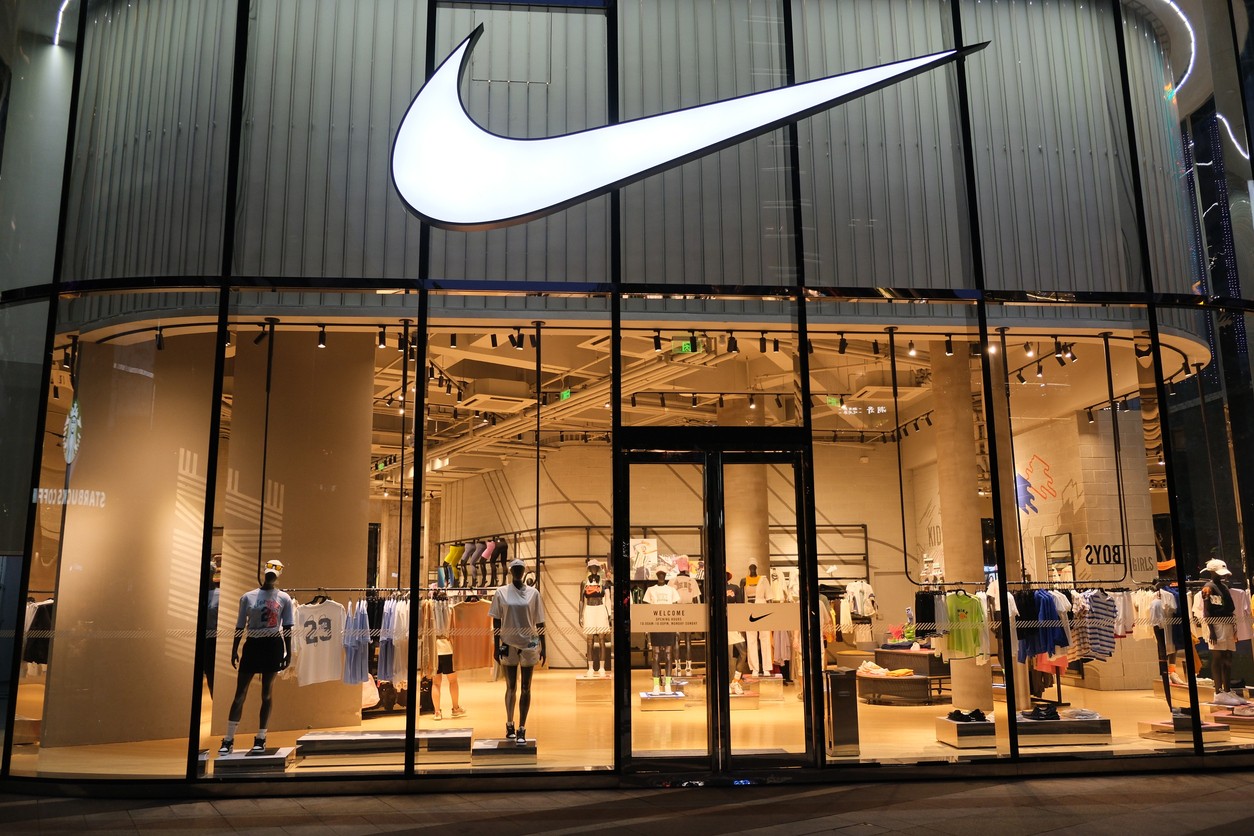
Clothing, Apparel, and Athletic Products
The Olympics showcase the athletes' skills and the latest in sportswear and equipment. Global brands like Adidas, Nike, and Puma often sponsor national teams and provide state-of-the-art apparel and gear. For instance, Adidas has a long history of sponsoring the German national team, providing everything from training kits to competition uniforms. Similarly, companies like Seiko supply precision timing equipment for accurately measuring athletic performances.
In addition to these global brands, local apparel companies often get involved. For instance, Li-Ning, a Chinese sportswear company, was a prominent partner during the Beijing 2008 Olympics, outfitting the Chinese national team. These partner ecosystems extend beyond apparel to include equipment and accessories. Omega, a Swiss watchmaker, has been the official timekeeper of the Olympics since 1932, providing the technology for timing and scoring across various sports. These collaborations highlight the intersection of technology and sports, showcasing innovations that enhance athletic performance.
For the 2024 Paris Olympics, French sportswear brand Le Coq Sportif has been chosen as the official outfitter for the French national team. This partnership highlights the brand's heritage and promotes French craftsmanship and design on the global stage. Additionally, global partners like Nike and Adidas continue to play a significant role, providing cutting-edge gear and apparel for athletes worldwide. The use of sustainable materials and innovative designs underscores the commitment of these brands to both performance and environmental responsibility.
The Paris Olympics also feature collaborations with technology companies to enhance athletes' performance and experience. For instance, partnerships with companies like Garmin and Polar provide athletes with advanced wearable technology, enabling them to monitor their performance and optimize their training. These innovations not only improve athletic performance but also contribute to the health and well-being of the athletes.
Media, Broadcasting, and Advertising
The Olympic Games are one of the most-watched sporting events worldwide, requiring extensive media and broadcasting arrangements. Major networks such as NBC, BBC, and CCTV secure broadcasting rights, ensuring millions of viewers can watch the events live. These broadcasters work closely with the IOC to deliver comprehensive coverage, including live streams, highlights, and in-depth analysis. Advertising agencies and brands also play a significant role, leveraging the global platform of the Olympics to promote their products and services through sponsorship deals and marketing campaigns.
The role of digital media has grown exponentially in recent years. Social media platforms like Facebook, Twitter, and Instagram partner with the IOC and broadcasters to provide real-time updates, behind-the-scenes content, and interactive experiences for fans worldwide. These platforms enable fans to engage with the Games unprecedentedly, sharing their experiences and supporting their favorite athletes. Advertising agencies, such as WPP and Omnicom, create compelling campaigns that capture the spirit of the Olympics, driving brand engagement and consumer loyalty.
For the 2024 Paris Olympics, the French media landscape plays a pivotal role. France Télévisions, the national public broadcaster, has secured the rights to broadcast the Games in France, offering extensive coverage across multiple channels and platforms. Internationally, NBC Universal continues its long-standing partnership with the IOC, providing comprehensive coverage in the United States. The use of advanced technologies such as 4K and VR by these broadcasters ensures that viewers have an immersive and engaging experience. Additionally, partnerships with digital platforms like YouTube and TikTok enhance the reach and accessibility of Olympic content, particularly among younger audiences.
The Paris Olympics media strategy also includes innovative storytelling and fan engagement approaches. Collaborations with content creators and influencers provide unique perspectives and behind-the-scenes insights, enhancing the connection between fans and the Games. Virtual reality (VR) and augmented reality (AR) experiences, developed in partnership with technology companies, offer immersive ways for fans to experience the events from their homes, making the Games more accessible to a global audience.
Hotels and Tourism
The influx of visitors during the Olympics presents a significant opportunity for the host city's hospitality and tourism sectors. Hotels and accommodations experience a surge in demand, prompting partnerships with major hotel chains and local establishments to provide sufficient lodging options. Additionally, tourism boards capitalize on the event to showcase the host city and country, organizing tours and cultural events to enhance the visitor experience. The 2020 Tokyo Olympics, for instance, saw a concerted effort to promote Japanese culture and heritage to international visitors.
Local businesses, including restaurants, shops, and tour operators, benefit from the increased foot traffic and global exposure. For example, during the London 2012 Olympics, VisitBritain launched extensive marketing campaigns to attract tourists, highlighting attractions such as the Tower of London and Buckingham Palace. Hotel chains like Marriott and Hilton often become official accommodation partners, offering special packages and promotions for Olympic visitors. These partner ecosystems extend to short-term rental platforms like Airbnb, which collaborated with the IOC to provide additional lodging options for attendees during the Rio 2016 Olympics.
For the 2024 Paris Olympics, the French hospitality industry is gearing up for an influx of visitors. Major hotel chains such as Accor and Hyatt are expanding their capacity and offering special Olympic packages to accommodate the anticipated demand. The French government also invests in tourism infrastructure, promoting iconic attractions like the Eiffel Tower, the Louvre, and the Palace of Versailles. Partnerships with local businesses, such as restaurants and souvenir shops, ensure visitors have a memorable and authentic French experience. Additionally, Airbnb continues to play a significant role, offering unique lodging options that allow visitors to immerse themselves in the local culture.
The tourism strategy for the Paris Olympics also includes promoting lesser-known regions of France, encouraging visitors to explore beyond the capital. Partnerships with regional tourism boards and local businesses aim to highlight France's diverse cultural and natural attractions, from Bordeaux's vineyards to the Côte d'Azur's beaches. These efforts not only enhance the visitor experience but also distribute the economic benefits of the Games more widely across the country.
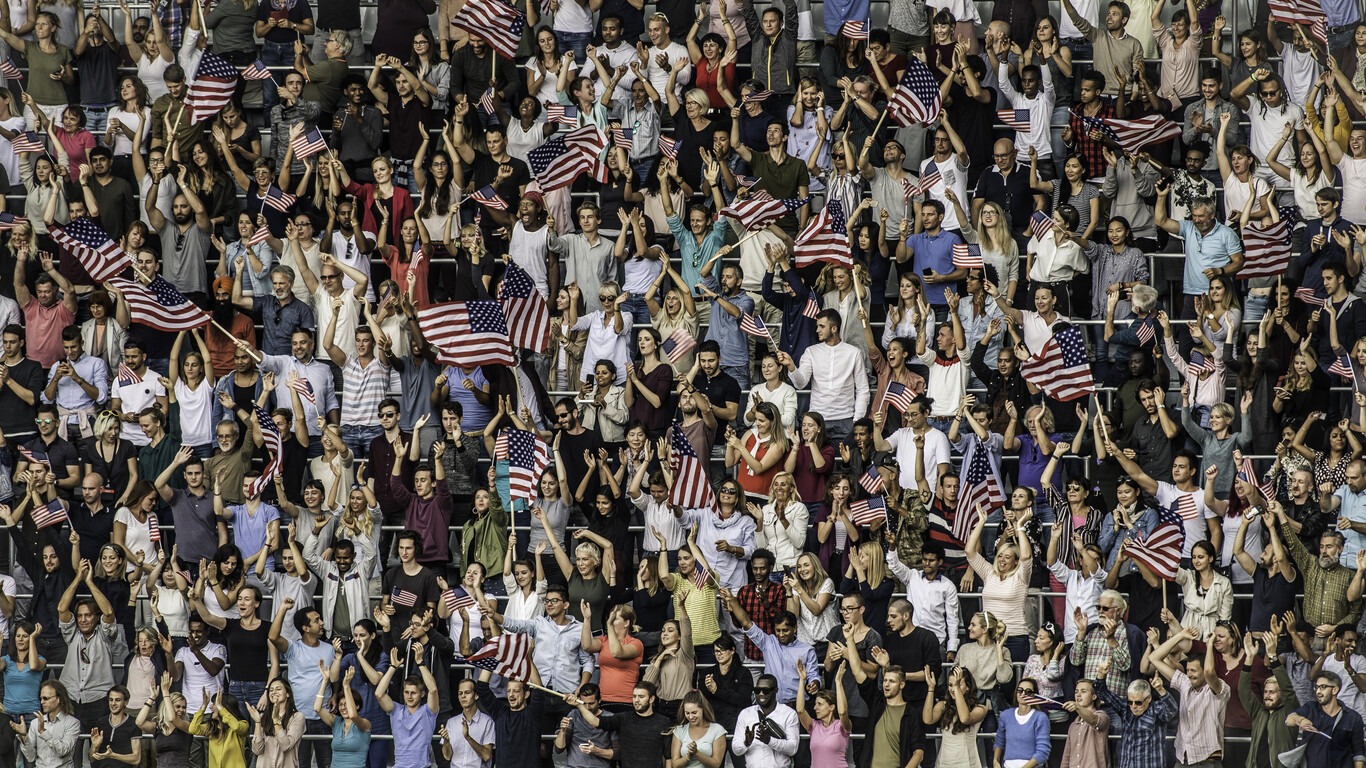
Fans and Spectators
Ultimately, the success of the Olympic Games hinges on the enthusiasm and support of fans and spectators. From purchasing tickets to attending events, fans create the vibrant atmosphere that characterizes the Olympics. The organizing committee collaborates with ticketing agencies and fan clubs to ensure a seamless ticketing process and an engaging fan experience. Special initiatives like fan zones and interactive exhibits are often set up to enhance spectator engagement and participation.
Fan engagement strategies have evolved with the advent of digital technology. Virtual fan experiences, such as those provided by the Olympic Channel, allow fans to interact with athletes, participate in virtual events, and access exclusive content. These initiatives help maintain the excitement and connection between the Games and its global audience, even for those who cannot attend in person. Merchandise partner ecosystems with brands like Coca-Cola and McDonald's offer fans memorabilia and collectibles, further enhancing their connection to the event.
Innovative strategies for the 2024 Paris Olympics are taking fan engagement to new heights. The organizing committee has launched the "Club Paris 2024" program, offering exclusive benefits to members, including early access to tickets, special events, and behind-the-scenes tours. Digital platforms like the Paris 2024 app provide real-time updates, interactive maps, and personalized schedules, enhancing the fan experience. Additionally, immersive fan zones are being set up across Paris, where spectators can watch live broadcasts, participate in activities, and celebrate with fellow fans. These initiatives ensure that the excitement and spirit of the Olympics are felt throughout the host city and beyond.
The Paris Olympics also emphasize inclusivity and accessibility for all fans. Partnerships with organizations such as the International Paralympic Committee (IPC) and local disability advocacy groups ensure that venues and services are accessible to people with disabilities. Initiatives like sensory-friendly zones and accessible seating options highlight the commitment to creating an inclusive environment where everyone can enjoy the Games.
Additional Partner Ecosystems: Sustainability and Technology
In recent years, sustainability has become a critical focus for the Olympics, leading to partnerships with organizations and companies dedicated to environmental conservation. The IOC collaborates with the United Nations Environment Programme (UNEP) and other NGOs to implement sustainable practices, such as reducing carbon emissions, promoting recycling, and conserving natural resources. For the Tokyo 2020 Olympics, Toyota introduced a fleet of hydrogen-powered vehicles to minimize the environmental impact, while the organizers committed to using renewable energy sources for the event.
Technological innovation is another area where partnerships play a crucial role. Companies like Intel and Alibaba have become technology partners, bringing cutting-edge advancements to the Games. Intel, for instance, has introduced virtual reality (VR) and augmented reality (AR) experiences, enhancing how fans engage with the events. As the official cloud services partner, Alibaba provides the infrastructure for data management and digital services, ensuring seamless operations and enhanced fan experiences. These technological partner ecosystems not only improve the efficiency of the Games but also offer new and exciting ways for audiences to connect with the Olympic spirit.
For the 2024 Paris Olympics, sustainability is a core focus, with the organizing committee committed to making the Games the most environmentally friendly in history. Partnerships with companies like EDF and Veolia are crucial in achieving these goals. EDF is providing renewable energy solutions, including solar and wind power, to reduce the event's carbon footprint. Veolia is responsible for waste management and recycling, ensuring that the Games leave a minimal environmental impact. Sustainable construction practices are also being employed in developing new venues and infrastructure, highlighting Paris 2024's commitment to environmental stewardship.
On the technology front, partnerships with companies like Atos and Cisco are enhancing the digital infrastructure of the Games. Atos, the official IT partner, manages the vast amounts of data generated during the event, ensuring real-time results and seamless operations. Cisco is providing advanced networking solutions, including Wi-Fi and cybersecurity, to support the connectivity needs of athletes, officials, and spectators. Integrating artificial intelligence (AI) and machine learning (ML) technologies further enhances the efficiency and security of the Games, setting new standards for future Olympic events.
The Paris Olympics also feature partnerships with startups and innovation hubs to foster technological advancements. The "Tech for Good" initiative, in collaboration with Station F, Europe's largest startup campus, encourages startups to develop solutions that enhance the Games' sustainability, accessibility, and overall experience. These partner ecosystems drive innovation and create opportunities for emerging companies to showcase their technologies globally.
Know more about partner ecosystem.Conclusion
The Olympic Games testify to global cooperation's power and the intricate partnerships that make such a grand event possible. Every stakeholder is vital, from sports associations and organizing bodies to security forces, airlines, healthcare providers, apparel brands, media, hotels, and fans. The seamless integration of these diverse partner ecosystems underscores the importance of global and local collaboration, demonstrating that the Olympics are more than just a sporting event—they celebrate unity, excellence, and the human spirit.
In an era when global challenges demand collective action, the Olympics serve as a beacon of what can be achieved through collaboration and shared purpose. The success of the Games reminds us that by working together, we can overcome obstacles, celebrate diversity, and inspire future generations to strive for greatness. As the Olympic flame continues to travel from one host city to the next, it carries the legacy of countless partnerships that make this extraordinary event possible, lighting the way for a brighter, more connected world.
The 2024 Paris Olympics exemplify this spirit of partnership and innovation. With a focus on sustainability, technological advancement, and fan engagement, the Games are set to be a landmark event that showcases the best of what humanity can achieve when we work together. From the athletes who inspire us with their dedication and skill to the countless partners who support every aspect of the Games, the Olympics remind us of the power of unity and the enduring legacy of the Olympic spirit.
Best Practices Guidebook
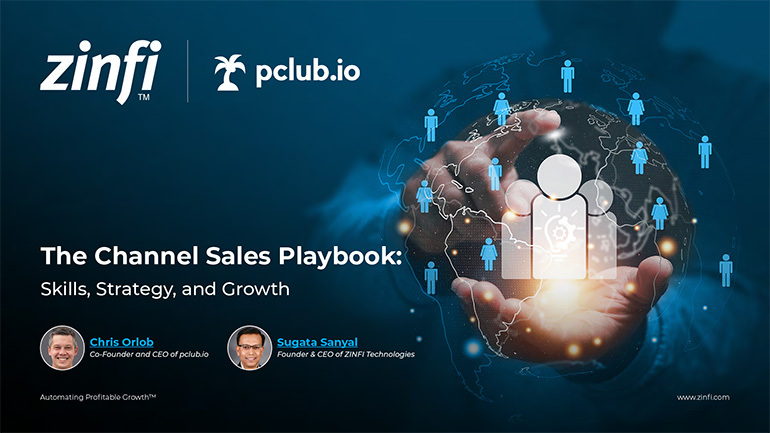 The Channel Sales Playbook: Skills, Strategy, and Growth
The Channel Sales Playbook: Skills, Strategy, and GrowthDownload for FREE
 Blueprints for Vertical Success Best Practices
Blueprints for Vertical Success Best PracticesDownload for FREE
 The Future of Partner Enablement: From Enablement Gaps to Global Advantage
The Future of Partner Enablement: From Enablement Gaps to Global AdvantageDownload for FREE
 Reimagine Sales Development. Build a Smarter Prospecting Engine
Reimagine Sales Development. Build a Smarter Prospecting EngineDownload for FREE
 The Zero Trust Imperative: Fortifying Enterprise Security Against AI-Driven Threats
The Zero Trust Imperative: Fortifying Enterprise Security Against AI-Driven ThreatsDownload for FREE
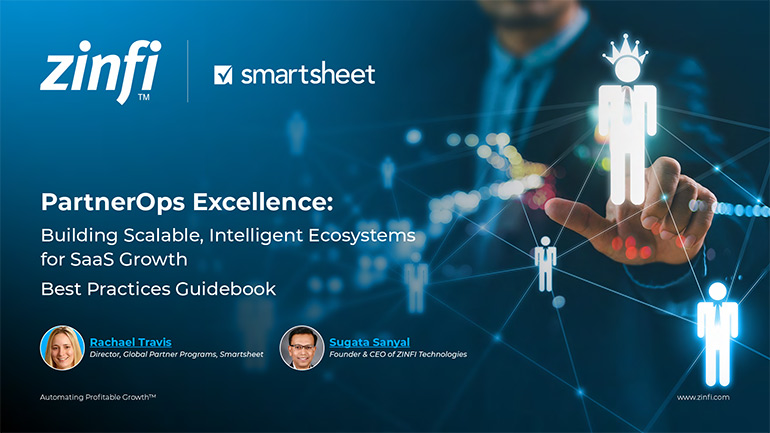 PartnerOps Excellence: The Definitive Guide to Scalable SaaS Ecosystems
PartnerOps Excellence: The Definitive Guide to Scalable SaaS EcosystemsDownload for FREE
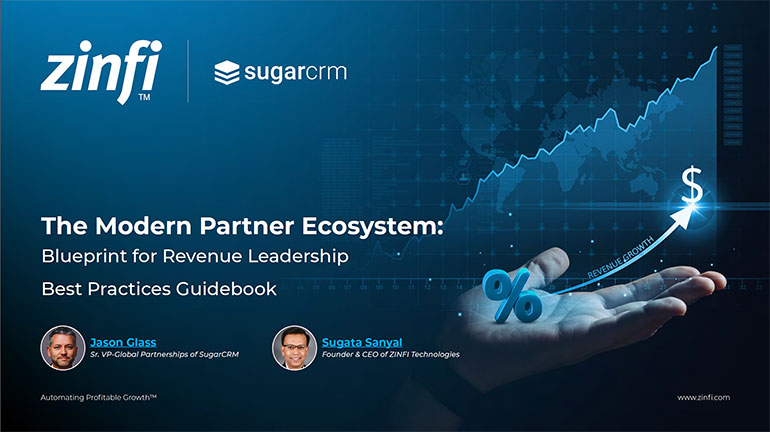 The Modern Partner Ecosystem Best Practices
The Modern Partner Ecosystem Best PracticesDownload for FREE
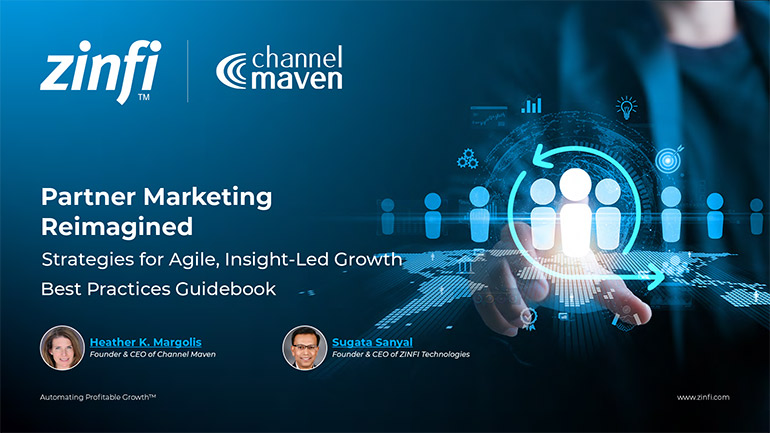 Partner Marketing Reimagined: Strategies for Agile, Insight-Led Growth
Partner Marketing Reimagined: Strategies for Agile, Insight-Led GrowthDownload for FREE
 Scaling with PartnerOps Best Pratices
Scaling with PartnerOps Best PraticesDownload for FREE
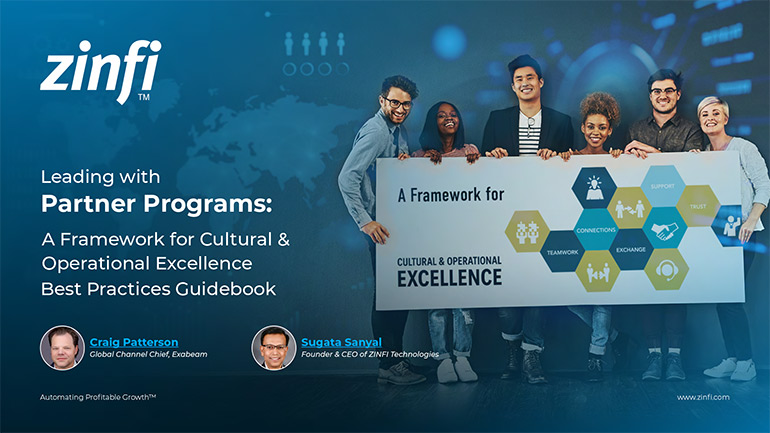 Leading with Partner Programs Best Pratices
Leading with Partner Programs Best PraticesDownload for FREE
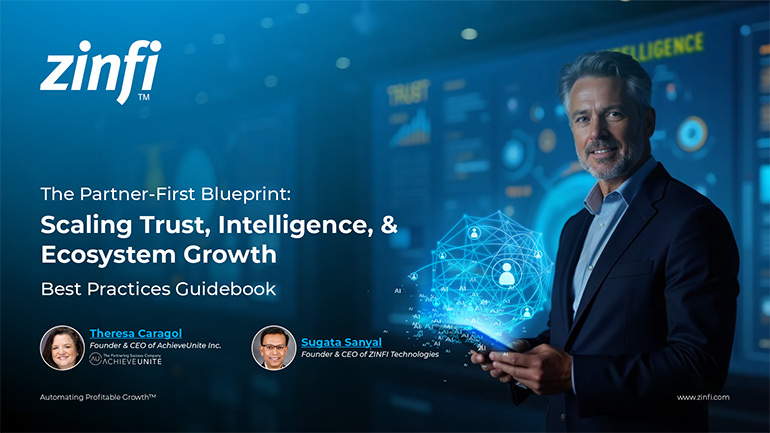 The Partner-First Blueprint: Scaling Trust, Intelligence, and Ecosystem Growth
The Partner-First Blueprint: Scaling Trust, Intelligence, and Ecosystem GrowthDownload for FREE
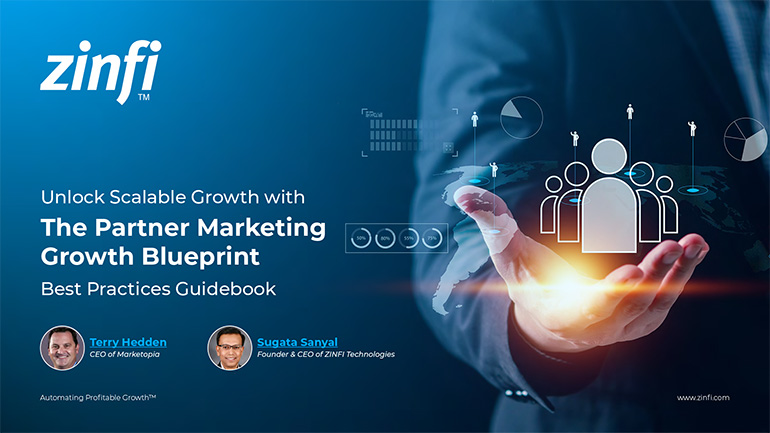 Unlock Scalable Growth with The Partner Marketing Growth Blueprint
Unlock Scalable Growth with The Partner Marketing Growth BlueprintDownload for FREE
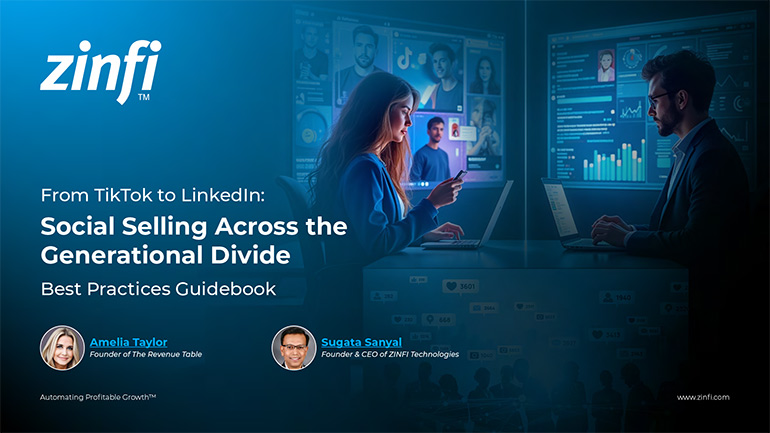 From TikTok to LinkedIn: Social Selling Across the Generational Divide
From TikTok to LinkedIn: Social Selling Across the Generational DivideDownload for FREE
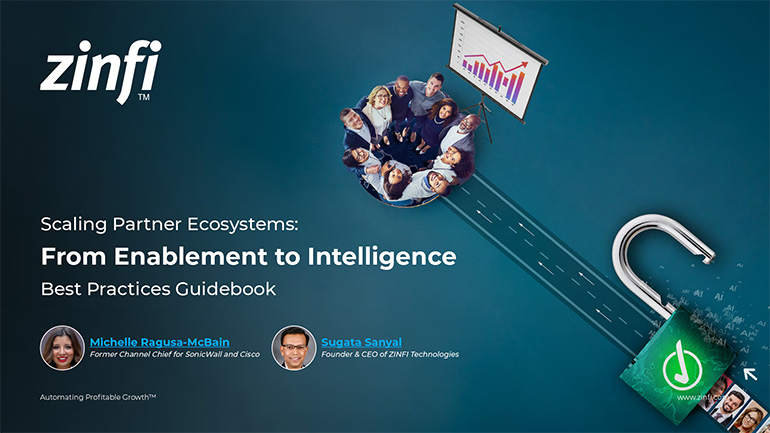 Scaling Partner Ecosystems: From Enablement to Intelligence
Scaling Partner Ecosystems: From Enablement to IntelligenceDownload for FREE
 The Ultimate Guide to Partner Marketing Success Best Practices
The Ultimate Guide to Partner Marketing Success Best PracticesDownload for FREE
 How to Start and Scale Partner Ecosystems Best Practices
How to Start and Scale Partner Ecosystems Best PracticesDownload for FREE
 The Evolution of PartnerOps: Past, Present & Future Best Practices
The Evolution of PartnerOps: Past, Present & Future Best PracticesDownload for FREE


